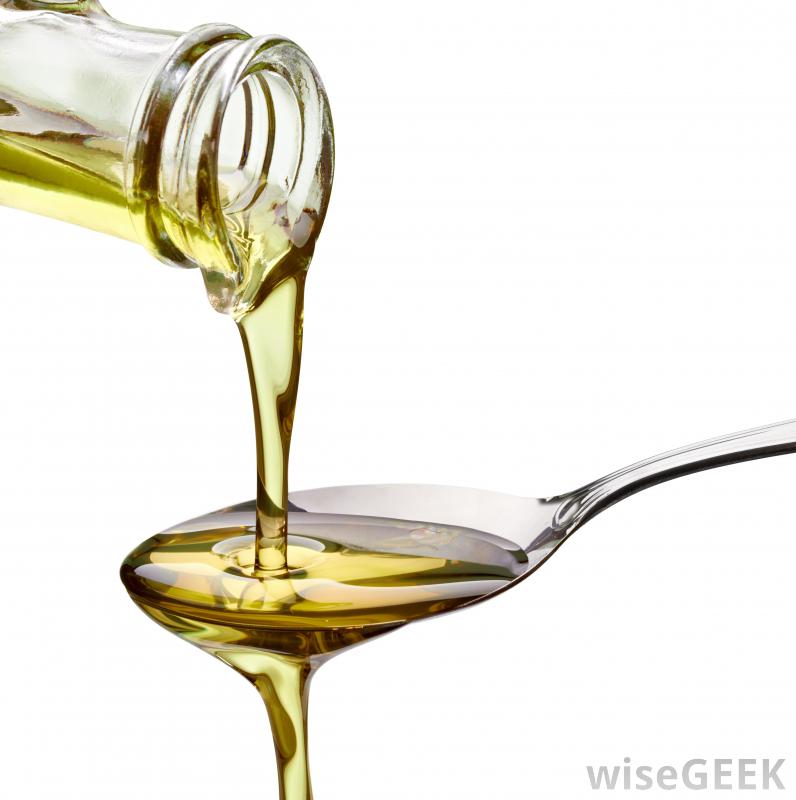Almost every recipe starts with adding oil to a pan, but not all oils are made equally. Also, not all oils can withstand high heat. So, it is really important to use the “good” oils when cooking.
Oils are essential to a healthy diet. They are an important source of essential fatty acids and vitamin e. The “good” oils are also rich in polyunsaturated and monounsaturated fats. The bad oils have a lot of unsaturated fats, which you want to avoid.
When I say that certain oils cannot withstand heat, what I mean is certain oils, when heated past their smoke points become unstable and the molecules making up the oils start to oxidize becoming damaged and degraded. When that happens, the oils produce harmful free radicals that when ingested can harm you. It can cause cellular damage in your body, which can cause certain disease. Also, oils that reach their smoke point release acrolein, which could be dangerous to your lungs. So, you need to pick oils that can withstand high heat when you are cooking to avoid the exposure to harmful carcinogens.
Further, it is important to consider how processed the oil is; the processing of the oil affects its quality. Unrefined oils contain more nutrients, but they are more sensitive to heat. Refined oils tend to have higher smoke points than unrefined oils. However, there is a problem with refined oils. Some are extracted using chemical solvents, while other oils are extracted by pressing plants or seeds. It is usually best to avoid chemically extracted oils and instead use oils that are cold pressed. In general, the more refined an oil is from its natural state (or “virgin”) an oil is, the higher its smoke point is, and the hotter it can get without degrading. Meanwhile, more virgin or unrefined oils may have more flavor, but they’re more volatile and less able to handle heat.
So, you need to look out for how refined the oil is, how it is refined, and what its smoke point is.
Olive oil’s smoke point is approximately 350°F, which is a medium smoke point. It can’t be used for all cooking because of that. It should be noted that olive oil is rich in vitamin E, which acts as an antioxidant. The primary fatty acid in olive oil is oleic acid—a monounsaturated fat. Studies show that oleic acid has anticancer and anti-inflammatory properties. And olive oil contains antioxidant compounds called oleocanthal and oleuropein, which has anti-inflammatory effects, including helping to prevent LDL from oxidizing and preventing obesity. When choosing your olive oil, you should choose cold pressed virgin or extra virgin olive oil. These oils are less refined, which means they have better health qualities when consumed.
Avocado oil has a higher smoke point. It can withstand heat up to 520°F, which is why I cook mainly with avocado oil. It has a similar makeup as olive oil, so it’s good for you and it’s tough and strong. Some animal studies have also shown that compounds in avocado oil can help lower blood pressure, LDL, and triglycerides to prevent heart disease. What is amazing about avocado oil is that it maintains these health benefits at low and high temperatures, and it is generally unrefined. So, it is all around a good choice for you cooking needs. It is basically an all purpose oil.
Coconut oil is good in moderation. It does have quite a bit of unsaturated fats, but at the same time, it has many anti-inflammatory qualities. Its smoke point is roughly equal to olive oil, so you don’t want to use it for all of your cooking, but it is good for use in moderation.
Some other oils that are good to cook with in moderation are sesame oil and safflower oil.
What’s more important is the list of oils that you should simply avoid when cooking. These oils are fish oil, flax oil, palm oil, vegetable oil, canola oil, sunflower oil, and walnut oil. These oils either have very low smoke points, are highly processed, include GMOs, are high in unsaturated fats, or have little health benefits.
P.S. cooking with ghee is also a good choice, but I don’t count ghee as an oil, so it is left off of the list.
Here’s to being well preserved.
Always,
Taylor




